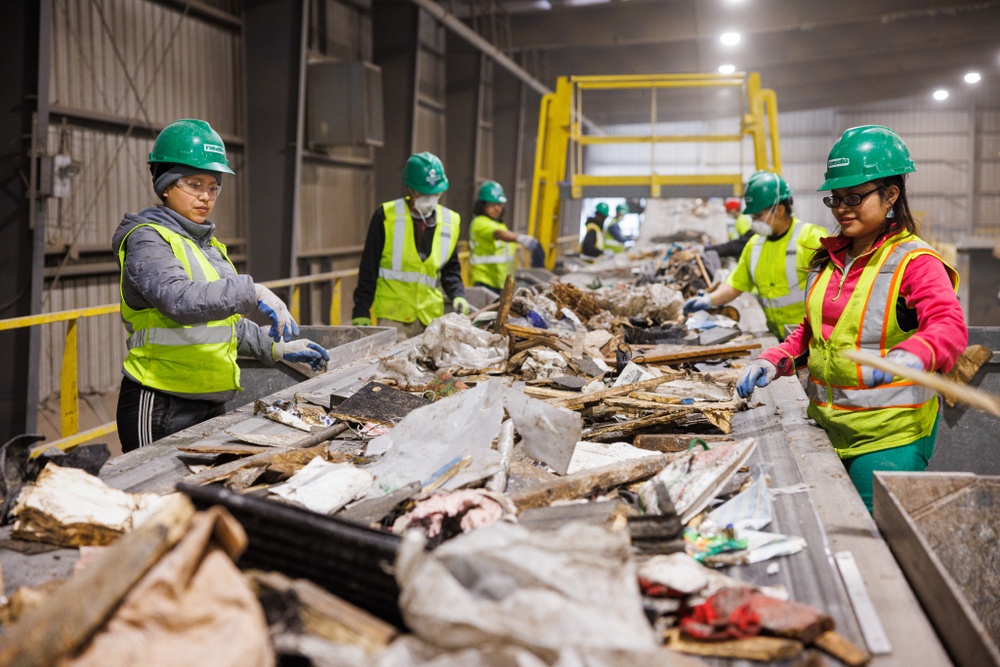The Rumors of the Death of Recycling Have Been Greatly Exaggerated

News stories today love to make you feel like a dupe for recycling. Inferring that recycling is dead, and never worked, to begin with.
A recent example from the USA Today: "If you're like most people, you probably assume that when you toss a plastic bottle into a recycling bin, it will be processed and turned into something new. But the truth is only a small fraction, 8% of plastics get recycled." The journalists really like this 8% stat. Sometimes they feel generous and make it 9%. But either way they misconstrue what it means. If you're like most people, you will come away from these articles thinking that over 90% of the plastic bottles you put in your recycling will go to a landfill, incineration, or right into the ocean.
This is not true.
There seem to be two sources for the 8-9% statistic:
The first source is EPA data reporting that in 2018 about 8.7% of all plastic waste generated was recycled. You might be asking, "but what's included in all plastic waste?" Well, we're glad you asked! That includes everything from recyclable plastic bottles to non-recyclable packaging to things like lawn furniture, appliances, diapers, trash bags, medical devices, and shower curtains. So, does the stat mean that the bottle or yogurt cup in your recycling bin won't really be recycled? No! It means that society makes a lot of non-recyclable stuff out of plastic. And it means that many parts of our country lack recycling infrastructure. But it does not mean that the plastic recyclables in your recycling bin is headed for the trash.
The second source is a 2017 study published in the peer-reviewed journal Science Advances. The researchers asked two fascinating questions: "How much plastic has been produced globally since its commercialization in the 1950s?" And "where is all that plastic today?" Throughout their research, they estimate that roughly 8.3 billion metric tons of plastic were produced between 1950 and 2015 and that 2 billion metric tons are still in-use in buildings and other products. Of the 6.3 billion tons of plastic discarded since 1950, they found that 91% was landfilled or incinerated and 9% had been recycled. This is astonishing and, again, points to the fact that our society makes a lot of stuff out of plastic with very little regard for how recyclable it is and whether or not there is a method to recycle it. But again, this stat has nothing to do with whether the acceptable plastics in your recycling bin will really be recycled.
Casella recycles your plastics – in fact, we recycle over 100,000,000 pounds of plastic every year. And, we've made a commitment that as long as your plastics make it to one of our materials recovery facilities (MRFs) and it isn't contaminated beyond end-market specifications, we will process them and sell them to a North American end-market.
So please, next time someone forwards you an article and tells you recycling is pointless, push back a bit.
There have also been recent articles like this one in the Washington Post, this one in Plastics Recycling Update, and this one from letsrecycle.com that have helped provide a more realistic view on the topic, and we encourage you to read and share those as well.
Recycling is an all-hands-on-deck approach to managing our resources. Today, dispelling the myths about the death of recycling is no different.
With Casella, your recyclables get recycled, and together, we can always Recycle Better.
About Casella Waste Systems, Inc.
Casella Waste Systems, Inc., headquartered in Rutland, Vermont, is the Northeast’s largest recycler and most experienced fully integrated resource management company. Founded in 1975 as a single truck collection service, Casella has grown its operations to provide solid waste collection and disposal, transfer, recycling, and organics services to more than 900,000 residential, commercial, municipal, institutional, and industrial customers throughout the Northeast, and professional resource management services to over 10,000 customer locations in more than 40 states.
Contacts
